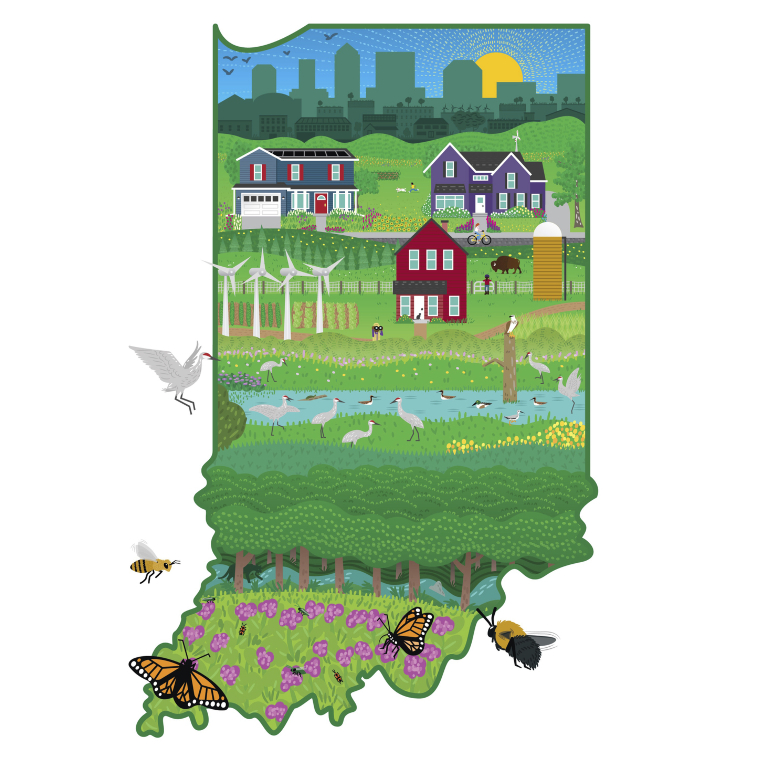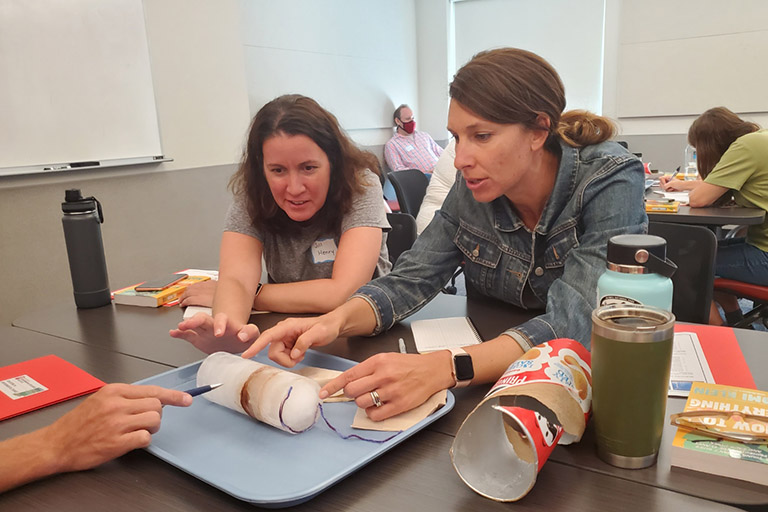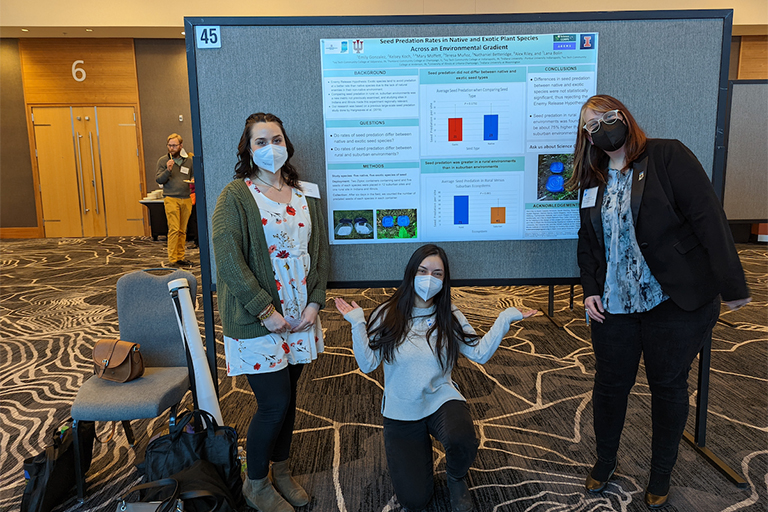In 2022, the US made significant commitments to addressing climate change, passing the first federal law aimed at substantially decreasing greenhouse gas emissions. The year also marked noteworthy climate action in Indiana, as Indiana University’s Environmental Resilience Institute helped advance the sustainability goals of Hoosier communities, businesses, and nonprofits, published original research in climate and resilience, and supported the development of new educational curriculum focused on climate and environmental science.

Community
Through ERI’s McKinney Midwest Climate Project, ten local governments and one regional coalition developed plans to reduce the greenhouse gas emissions fueling global warming. Concurrently, nine local governments assessed the health of their local tree canopies and developed plans to expand them to help offset some of the harshest impacts of climate change, such as heavy rainfall and extreme heat waves. In total, the assessments covered more than 245,000 acres and identified more than 60,000 acres of land well-suited for tree planting across the nine communities.
Many of these communities received assistance from McKinney Climate Fellows, dedicated IU students who spent the summer working on sustainability projects at organizations across the state, taking on everything from drafting legal guidance for the protection of Indiana bat populations, to working with congregations on clean energy and energy efficiency. Thirty-nine fellows participated in the program this year, collectively contributing thousands of hours to Indiana’s climate resilience.
Past ERI efforts yielded fruit this year as well, as Resilience Cohort participants Carmel and Richmond adopted climate action plans and Bloomington, Carmel, Michigan City, and Zionsville achieved SolSmart designation. Other ERI initiatives, such as the Beat the Heat program, pioneered climate adaptation strategies for the state. In Year 2 of the program, Clarksville and Richmond published community-specific heat management plans to address the dangers of extreme heat. Combined, the two plans identified around 30 actions Clarksville and Richmond can take to lower the health risks of extreme heat.



Research
On the research front, IU Press published a comprehensive book co-authored by ERI research affiliates on the long-term impacts of climate change in Indiana and what Hoosiers can do to create resilient, equitable communities. Forty-six researchers contributed to the book, sharing their expertise on climate, water, energy, natural systems, and more, and providing a roadmap for how policymakers, community leaders, and engaged Indiana residents can navigate the stresses posed by environmental change to the state’s economy and health.
In the spring, ERI convened its annual research symposium to showcase the broad scholarship being conducted across the university system on climate and the environment. Nearly two dozen IU faculty and students presented on topics ranging from energy insecurity, to resilience on Eastern African farms, to light pollution and invasive species.
In October, ERI partnered on a new National Science Foundation Civic Innovation Challenge grant to explore solutions to mitigate extreme heat in urban areas in collaboration with Indianapolis and three other Midwest cities. The grant is led by the Midwest Climate Collaborative.
ERI affiliates also continue to do innovative research in climate and resilience. Notable projects include a study of rain-on-snow events in the Great Lakes Basin funded through the Midwest Climate Adaptation Science Center, a Department of Energy-funded climate modeling project focused on extreme precipitation patterns, and a study of how Andean flamingos are responding to threats posed by climate change and human encroachment.
Education
In 2022, Educating for Environmental Change expanded its programs to connect more K-12 teachers to experts, tools, and resources to improve climate and environmental science curriculum in Indiana schools. To date, more than 225 teachers have participated in the program, reaching thousands of students over EfEC’s six-year history.
ERI also helped faculty develop several new education modules. ERI research associate Lana Bolin and affiliate Jen Lau connected community college students in Indiana and Illinois to paid research experiences through Science CORPS. Participants presented their research findings on seed predation at the Indiana Academy of Sciences meeting in March 2022. IU Biology Professor Armin Moczek partnered with Bloomington South High School biology teacher Kirstin Milks to create a new education module on climate change that studies the problem through students’ local environment. IU Earth and Atmospheric Science Professor Ben Kravitz also fine-tuned a five-lesson curriculum focused on climate change and geoengineering.
All of these resources are helping to address critical gaps in environmental science education.
About the Environmental Resilience Institute
Indiana University’s Environmental Resilience Institute brings together a broad coalition of government, business, nonprofit, and community leaders to help Indiana and the Midwest better prepare for the challenges of environmental change. By integrating research, education, and community, ERI is working to create a more sustainable, equitable, and prosperous future. Learn more at eri.iu.edu.


